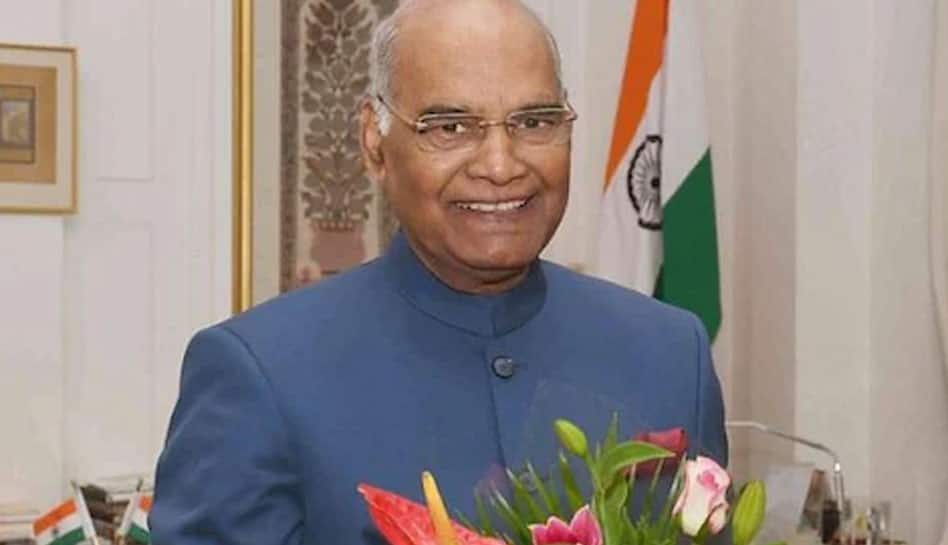NEW DELHI: In a big move, the Centre on Friday announced that it has constituted a committee headed by former President Ram Nath Kovind to explore the possibility of ‘one nation, one election’, according to news agency PTI. An official notification on the members of the panel will be issued later. The move comes a day after the government called a special session of Parliament between September 18 and 22, the agenda for which is under wraps.
#BreakingNews: वन नेशन, वन इलेक्शन पर कमेटी का गठन
पूर्व राष्ट्रपति रामनाथ कोविंद होंगे कमेटी के अध्यक्ष #OneNationOneElection #PMModi #RamNathKovind #BJP @Nidhijourno @supreetanchor pic.twitter.com/68pHCTBTdN
— Zee News (@ZeeNews) September 1, 2023
What Is ‘One Nation, One Election’?
The concept of ‘One Nation, One Election’ refers to holding simultaneous elections across the country. This means that elections for the Lok Sabha and all state assemblies across India will be held simultaneously, with voting presumably taking place around the same time.
Over the years, Prime Minister Narendra Modi has pushed strongly for the idea of simultaneous Lok Sabha and state assembly polls, and the decision to task Kovind to look into it underscores the government’s seriousness as a host of elections approach.
Assembly polls are due in five states in November-December and they will be followed by the Lok Sabha elections in May-June next year. However, the recent moves by the government have thrown open the possibility of advancing the general elections and some state polls, which are scheduled after and with the Lok Sabha contest.
Moreover, the government’s sudden move to call a “special session” of Parliament between September 18 and 22 despite making the agenda clear has triggered a lot of speculations.
“Special Session of Parliament (13th Session of 17th Lok Sabha and 261st Session of Rajya Sabha) is being called from 18th to 22nd September having five sittings. Amid Amrit Kaal, looking forward to having fruitful discussions and debate in Parliament,” Parliamentary Affairs Minister Pralhad Joshi said on X.
It will be the first such special session under the nine years of the Prime Minister Narendra Modi-led government which had convened a special joint sitting of Lok Sabha and Rajya Sabha to mark the midnight GST roll-out on June 30, 2017. However, it will be a full-fledged session of five days this time with both Houses meeting separately as they usually do during sessions.
Generally, three parliamentary sessions are held in a year- Budget, Monsoon and Winter sessions. Sources said the “special session” could see parliamentary operations being shifted to the new Parliament building which was inaugurated by Prime Minister Narendra Modi on May 28.
With the government not spelling out its agenda, speculation swirled that the government may push some showpiece bills in the run-up to some key state assembly polls followed by the all-important Lok Sabha election.
Sources, including in the ruling BJP, spoke of the possibility of bills on simultaneous general, state and local polls, something Modi has assiduously pushed, and reservations for women in directly elected legislatures like Lok Sabha and assemblies. Both are constitutional amendment bills and will require passage with the support of two-thirds of members in both Houses.
The recent historic success of the Chandrayaan-3 mission and India’s goals for ‘Amrit Kaal’ may be part of the wider discussions during the special session, which will come a week after the G20 summit meeting scheduled for September 9-10.
Congress leader Jairam Ramesh alleged that the announcement of the special session just three weeks after the end of the Monsoon session was aimed at managing “the news cycle” and countering the news about the ongoing meeting of INDIA parties in Mumbai and the latest revelations on Adani. The Monsoon session of Parliament ended on August 11.
The last time Parliament met outside its three usual sessions was –at midnight on June 30, 2017, to mark the rollout of GST. However, it was a joint sitting of Lok Sabha and Rajya Sabha and was not a proper session. A six-day special sitting was held in August 1997 to commemorate the 50th anniversary of India’s independence.
Midnight sessions were also held on August 9, 1992, for the 50th anniversary of the ‘Quit India Movement’, August 14-15, 1972 to celebrate the silver jubilee of India’s independence, while the first such session was on August 14-15, 1947 on the eve of India’s independence.
(With PTI Inputs)




